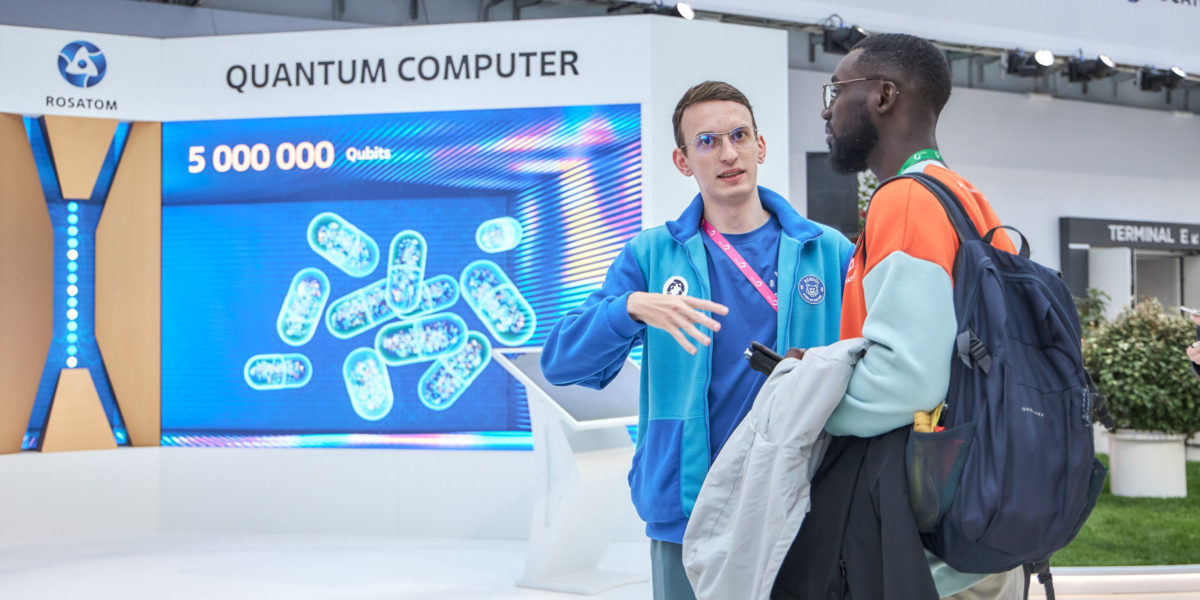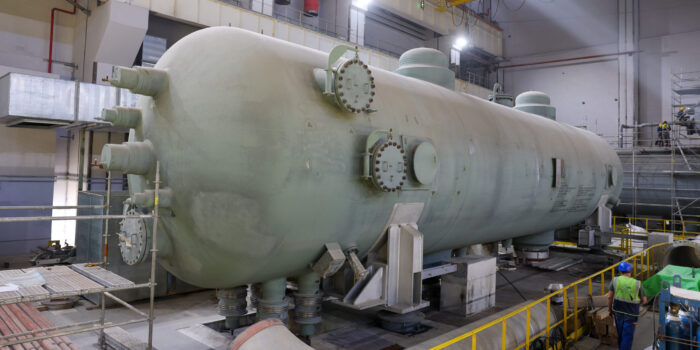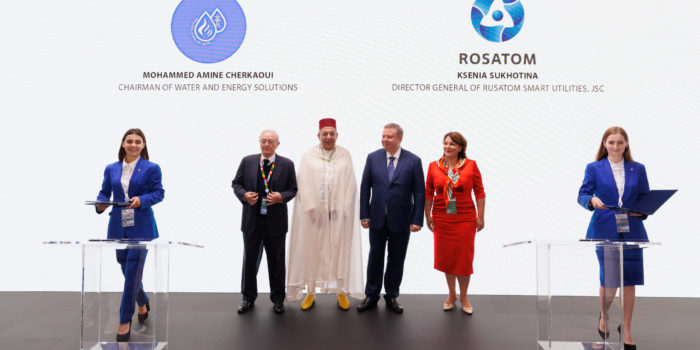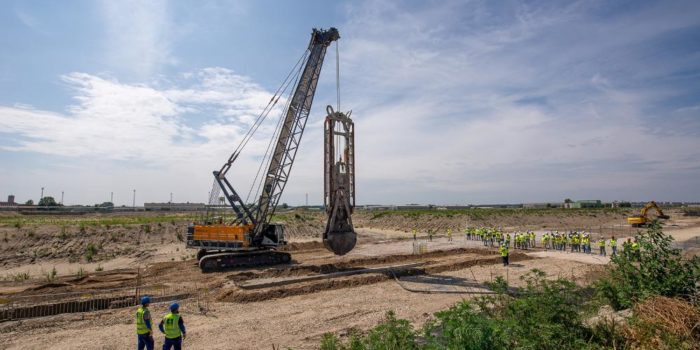At the World Youth Festival, State Atomic Energy Corporation Rosatom organized a scientific and educational program on quantum technologies for schoolchildren and students from different countries.
More than 1,000 participants were from Russia, Guatemala, Spain, France, Uganda, Turkmenistan, China, Egypt, Morocco, Kazakhstan, Germany, Tajikistan, Serbia, Brazil, Nigeria, and other countries.

The highlight of the program was Rosatom’s Quantum Day that took place the day before: such events as the Open Laboratory, the Physics in Memes talk show, Tea with a Scientist, and the Quantum Quiz aimed to popularize quantum physics and research in the field of quantum computing in modern interactive formats. Also, there were screenings of a 3D film about the quantum computer for the participants in the dome of the Rosatom Planetarium.
A number of Rosatom’s quantum-themed events were held as part of the children’s program at the Festival. Participants in the Quantum Visionaries project studied the configuration of quantum computer and the application of quantum technologies in real life. As part of the Global Challenges program, young scientists from Rosatom Quantum Technologies and the Russian Quantum Center gave TED-style talks on quantum computing. The focus was on the role of this research field in the creation of new materials, protection of data transmission, and development of promising technologies at the intersection of physics, IT, engineering, chemistry, biology, and medicine. Guided by the scientists, the program participants came up with profiles of the top-5 quantum technology professions of the future, including quantum engineer, quantum biologist, quantum pharmacist, quantum programmer, and quantum cryptographer. Along with the digital science, the discussions touched on issues of the global quantum race to ensure the future technological competitiveness of nations.
Dmitry Chermoshentsev, Researcher at Rosatom Quantum Technologies: “Breakthroughs in the field of quantum technologies are associated with an active international dialogue between researchers and engineers. Leveraging on the weight of Rosatom and the Russian Quantum Center, we have driven the attention of young people from different countries, who are attending the festival, to quantum topics. That’s a step towards forming research teams that in the future will contribute to the technological development of the mankind. Rosatom stepped up as one of the global leaders in the field of future technologies. This is important both for further development of Rosatom’s own scientific school and for the promotion of ethical standards in the field of future technologies, consistent with the ethics of the atom.”
The World Youth Festival is being held in accordance with the decree of the President of Russia Vladimir Putin aiming to develop international youth cooperation. It will be attended by over 20,000 young leaders in the fields of education, science, international cooperation, culture, volunteering and charity, sports, business, and media, including 10,000 foreign participants. For the first time, teenagers take part in the festival as part of the track of Movement of the First, the all-Russian movement of children and youth.
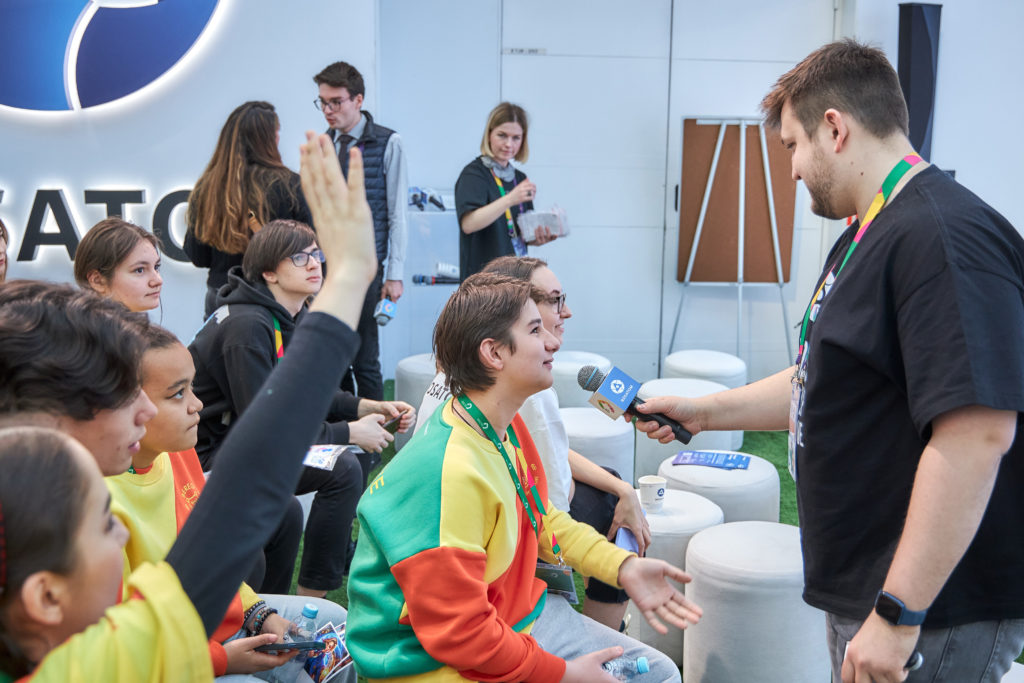
Reference
Rosatom is a global technological multi-business group of companies with assets in energy, mechanical engineering, and construction industries. It has more than 460 subsidiaries – both enterprises and organizations – employing 360,000 people. It has been implementing Rosatom’s Nuclear Industry Standard Digital Strategy (NISDS) since 2018; work in various areas of focus within different fields is being done as part of NISDS. In the Participation in Digitalization of Russia area of focus, Rosatom is the competence center for the Digital Technologies federal project of the Russian Digital Economy national program, and a leading company in the implementation of road maps aimed at developing the New Industrial Software and Quantum Computing high-tech areas. Since 2021, Rosatom has been implementing the first Russian import-substitution project for an entire class of industrial software, namely, the engineering analysis and mathematical modeling systems (CAE class). In 2022, the corporation became the project coordinator for the creation of Russian heavy class PLM systems. In the Digital Products area of focus, Rosatom is developing and commercializing digital products for industrial enterprises – there are more than 60 digital products in the Rosatom portfolio. In the Internal Digitalization area of focus, it is responsible for digitalization of NPP construction processes, digital import-substitution, and creating Rosatom’s Nuclear Industry Standard Digital Platform. Rosatom’s NISDS also includes development of end-to-end digital technologies (data handling technologies, internet of things, industrial technologies, virtual and augmented reality, neurotechnologies and artificial intelligence, wireless technologies, robotics and sensorics, etc.). In the Digital Competencies and Culture area of focus, Rosatom implements educational programs to improve the digital literacy of employees, develops industrial production and technological platforms, and runs of digital skill competitions.

